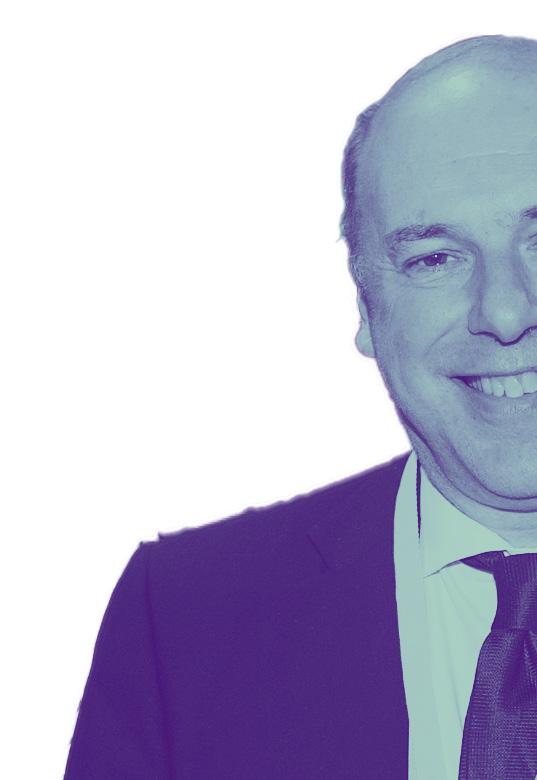
8 minute read
FEATURE
from BP&R March 2022
FACT CHECK
The claim: “Plastic packaging increases food waste”
BACKGROUND
In February, sustainability charity WRAP, which works closely with the plastics sector on many positive initiatives, published a study exploring food waste. The Guardian, and other outlets, have picked up on the report and run with headlines denouncing packaging (specifically plastic packaging) as a direct cause of food waste.
Unfortunately, this headline is misleading, and readers may be tempted to take it at face value, which gives cause for concern, given the preservatory and hygiene properties that plastic packaging offers. Especially since what the study actually found, was that food sold pre-packaged can lead to a consumer tendency to buy more than is required – which in turn can lead to food waste. And it’s worth noting that in theory, this consumer trend could apply to other types of food packaging (i.e. non-plastic).
REACTION
For the plastics community, this type of headline is another disappointing example of industry being asked to shoulder the full burden of consumer behaviour – and furthermore, taking the blame for it.
Responding to the report, the British Plastics Federation said: “Plastic packaging is rightly understood to reduce food waste and ultimately carbon emissions and although we respect the motivation behind this study, it is important to understand that its focus was solely on a small number of fresh food items and their lifespan within the home. In reality, many fresh products travel hundreds if not thousands of miles on their journey from farm to fork, so a form of packaging is required to protect and preserve them – and plastic packaging still excels at this due to being lightweight, strong and providing a moisture barrier (extending a product’s overall lifespan), in addition to other unique benefits.”
“Wrap’s summary report recommends to 'sell loose unless it can be shown that plastic packaging reduces overall food waste' – but we respectfully suggest that calculation should account for the entire journey of the product, rather than simply within the home. Whilst we acknowledge that food waste is most significant in the home, it still occurs in-store and during a product’s journey along the wider supply chain. In addition to preserving food, plastic packaging also provides an extra degree of hygiene and a way to trace its origin.”
MATERIALS | NEWS
How non-fungible tokens (NFTs) could incentivise plastic recycling
The Compound Company acquires Exxelor polymers from Esso Deutschland
Sustainability technology company Nozama has announced the launch of Plastiks – claimed to be the world’s fi rst utility non-fungible token (NFT) dedicated to the plastic recycling industry. The goal is to connect recyclers with plastic manufacturers, as well as artists. The NFT has been created to incentivise an increase in the amount of plastic that is recovered for recycling. The Plastiks marketplace works by allowing recyclers to turn invoice data into NFTs. Each NFT created uses data recorded on blockchain to certify that a corresponding amount of plastic has been recovered. This would potentially create a more transparent recycling operation and also provides recyclers with an additional source of income as they can mint and sell their recovery guarantee as an NFT on the Plastiks marketplace. SUP manufacturing companies and consumer brands can compensate for their waste by buying these tokens to demonstrate their commitment to sustainability and recycling. This can be used as a marketing tool or part of loyalty programme, to encourage individuals to collect NFTs, or a visual icon to be used on a company website demonstrating their dedication to reducing plastic waste. The model also connects artists across music, painting, photography and literature to produce NFTs that are collectable on both artistic merit and environmental grounds. The Plastiks blockchain-powered marketplace allows companies, individuals and NFT speculators to operate on the platform by minting, listing, publishing and trading the tokens. The platform is already attracting both buyers and sellers, as international recycling fi rms Urbaser and Plásticos Güell are already listing NFTs for sale. The latter completed the platform’s fi rst NFT sale, when hotels group, Grup Soteras bought ‘THE FOREST’, an NFT equivalent to 0.4 tons of polypropylene plastic (PP5). These transactions create an additional revenue stream for recyclers from plastic they have already recovered and off ers producers and users the opportunity to make a meaningful investment in the
Frans Haafk ens, major shareholder of The Compounding Company)
The Netherlands-based compound manufacturer The Compound Company has announced its acquisition of the production site, product portfolio and customer base for Exxelor polymer resins from ESSO Deutschland GmbH. The acquisition will increase the global production capacity of The Compound Company to about 70 kilotons per year and signifi cantly expand the group’s reach into new markets. Frans Haafk ens, major shareholder of The Compounding Company, said: “We are very excited to welcome the Exxelor manufacturing force and portfolio in our organisation. The acquisition adds a new sizeable jewel to our crown and ideally complements our established off ering of Yparex extrudable adhesives and EcoForte compound families. It provides great synergies to further grow our customer base, with new opportunities in several dynamic application areas.” Exxelor polymer resins are chemically modifi ed polyolefi n- and elastomers-based resins used to enhance the performance of engineering thermoplastics and other polymers. As impact modifi ers, they improve the toughness of compounds. As compatibilisers, coupling agents and adhesion promoters, they increase the bonding strength of non-polar polymers with polyolefi ns, fi llers and reinforcements as well as metals, thermoset rubbers and most polar substrates, including glass. ESSO Deutschland Plant Manager Ronald van den Berg added: “With The Compound Company, our Exxelor manufacturing operations have found a good home to strengthen the market focus of the product off ering and progress from a niche to a core business. Our resins fi t very well within The Compound Company’s existing range of functionalised and grafted polyolefi n-based solutions.” Wouter van den Berg, commercial director for The

recovery of SUPs. André Vanyi Robin, Founder and CEO of Nozama, said: “Plastiks is a bridge between plastic recyclers and producers in the ongoing fi ght to protect the environment. We are using NFTs as a utility – breaking new ground to give consumers faith that the end-to-end supply chain is committed to minimising waste.” “This is an innovative, blockchain-powered marketplace which has already attracted signifi cant demand from recyclers and producers, not to mention the artists who have been manifesting their fi ght against waste for this pioneering venture. “We hope to expand our network of companies across the globe who are dedicated to reducing the amount of singleuse plastic ending up in the environment, while enabling them to demonstrate to their stakeholders that they are fully committed to tracking, measuring and fi ghting plastic waste.”
Compound Company, said: “Our strategy is to use the addition of these performance resins as leverage for expanding into a wider range of markets. The production site and the brand will be maintained, and the integration of Exxelor in our business will be as smooth as possible, as smooth as possible, without any major without any major changes towards changes towards
Wouter van den Berg, Commercial Director for The Compound Company)
customers.”
Cellulose-reinforced resin could be a greener alternative to glassreinforced grades
Japanese player Polyplastics has launched Plastron LFT resin, which is made of ‘specially formulated regenerated cellulose fi bres’. The group says that Plastron LFT provides weight reduction plus mechanical strength, enabling manufacturers to reduce their carbon footprint and meet sustainability goals. Polyplastics says a comparison of long-fi bre cellulose-reinforced PP resin versus long-fi bre glassreinforced PP resin at the same fl exural modulus showed that cellulose-reinforced resin has lower density than glass-fi lled resin. While long-fi bre cellulose-reinforced PP resin has a fl exural modulus roughly 3% higher than that of 30% glass-reinforced PP resin, it exhibits higher values for Charpy impact strength, tensile strength, and fl exural strength, thus indicating potential for upgraded strength. Eco-friendly resins that incorporate natural fi bres, starch, wood powder, and other plant-based and natural mineral fi lling materials are being considered for use in a broader range of applications. Cellulose is a promising material to help reduce CO2 emissions but its insuffi cient strength is a limiting factor. By using regenerated cellulose in the development of LFT resins, the group says it has addressed this drawback. Regenerated cellulose is natural cellulose spun into continuous fi bres through wet spinning. Since cellulose is highly insoluble in solvents, a large portion of regenerated cellulose fi bres are manufactured through long and cumbersome processes. Simplifying these processes would likely lead to a further reduction in CO2. Polyplastics has developed regenerated longfi bre cellulose materials via a solvent method - a manufacturing process which it says “emits very little CO2”. Since this method involves a closed process that recovers virtually 100% of the solvent, it generates hardly any waste. The company has earned multiple patents for this technology in Japan and internationally.






26-28 SEPTEMBER 2023
Exhibit t w with h u us s
Interplas is back in 2023, bringing with it the opportunity for you to experience the UK’s largest plastics industry exhibition showcasing the full spectrum of plastics processing machinery, materials, software, services and ancillaries in one place.
It’s also the only plastics event in the UK where visitors can see working machinery LIVE on the show floor and where they’ll come to compare, contrast and buy.
With an expected 12,000+ attendees across the three-day event, as well as new features and an expanded floorplan, now is the time to position yourself as a company that can offer solutions, showcase innovation and offer expertise to an audience known for its quality and purchasing power.








